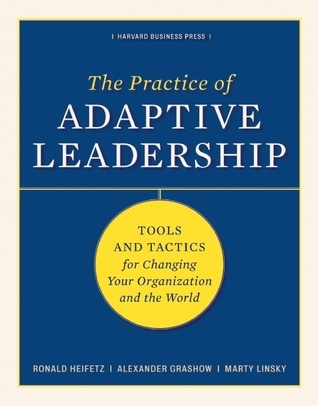Dear Nephew
An Epistle for a First Foray into the Corporate World
Dear Reader,
At the end of the first week of this new year, let me remind you of your chance to get even more from Second Drafts in 2022. As mentioned in last Friday’s post, here are three options:
To receive Second Drafts as is, you don’t need to do anything; you’ll get the Friday newsletter for the same great, low price of free. Thanks for reading!
To receive more (newsletter plus monthly podcast, guest essay or interview, in-depth book review), just add a paid subscription of $5/month or $50/year.
To receive all of the above and support my writing even more generously, subscribe with any amount above $50/year.
As an incentive, if you sign up for the annual $50 or more before Friday, January 14, I’ll send you a Second Drafts limited edition sponsor T-shirt to say thanks in February. (Note: We’re only doing one print run, so if you want a shirt, you’ve got six days to subscribe!)
Last week’s year-end newsletter was the most read of the year! Here’s an excerpt from a reader in response (I’m glad to hear from you and will publish your emails as space allows):
“Not much in the way of specific comments, but just generally enjoyed your reflection on being stuck in quarantine. I also admire your ability to be Switzerland when it comes to political issues, or in this case, vaccine issues that have inexplicably become political issues. If you had told me 5 years ago that we were going to soon be embarking on a global pandemic, and 40% of the American population were going to actively fight against taking a potential life-saving vaccine for it, I would have said you were crazy, especially given our nation's history of beating small pox, measles, polio, etc. I admire your patience, because, I admit, I think mine is about done. We're on our whatever number variant of this thing because we've allowed it to keep thriving and mutating, and I'd kinda like to have my life and full career back.”
Can’t say I disagree (though the degree to which I’ve been affected has been so much less than most, I’m sure). Please consider getting vaccinated, and make room for those who do not.
This week’s Feature and Posterity post are on learning and leading. I hope you enjoy them.
Don’t forget to upgrade your subscription! And as always, thanks for reading Second Drafts.
Craig
P.S.: You’re welcome and encouraged to email me directly with feedback, ideas, links, etc. at cmdunham [at] gmail [dot] com. Just know that, unless you specifically tell me not to, I may quote you here (though it will always be anonymously).
Hot Takes
While there’s always a lot in the news, most of it was more of the same this week:
January 6th brought out the expected partisan politicking from both sides; I don’t have much more to say than what I wrote about it last year, so I won’t.
Covid marches on (more contagious, less deadly), as do the Big Tech companies in their quest to silence even informed “violators” of their Covid policies.
Public school teachers unions continue to resist working, but mayors in Chicago and New York show signs of growing a spine (it is an election year).
Maybe I’m just in a rut…or maybe the news is. I’ll find some more interesting stuff next week to comment on, but for now, be sure to check out the Fresh & Random Linkage at the end of the email for the most interesting news stories of the week.
Dear Nephew
My oldest nephew, Ryan Kelley, just graduated from Southern Illinois University in Edwardsville with his degree in civil engineering. Having worked a variety of hands-on jobs to put himself through school, Ryan has now taken his first official corporate position at an engineering firm in Quincy, IL, where he interned the past two summers.

We had a graduation celebration for Ryan back in Illinois over the Christmas break, during which he asked me for my best advice for working in the corporate world. I told him I’d think about it (funny how one has time for that during quarantine) and then put down a few thoughts to send his way. As you’ll read, many apply beyond just a corporate environment.
Dear Nephew,
I’ve been thinking about your question, “What’s your best advice for the corporate world?” As I had time on the flight back to Montana, I thought I’d put a few ideas down for your consideration and trust you to make application of what makes sense. Obviously, I’ve only been in the “for-profit” world myself for a couple of years now, but I’ve been around plenty of owners and operators of their own companies and businesses for decades working with their kids, so let me see if any of this sticks.
People, Projects & Places: Learn the History
Even though you’re stepping into an established company, keep in mind that it wasn’t always this way; like any organization, it has grown into what it’s become. All businesses go through stages, and it’s important to learn what those were, when, and what factors (historical, cultural, economical, etc.) brought on changes that led to the way and the why things are done now. Institutional memory is important, so gather as much of it as you can from as many different people as you can to pick up the ethos of the company quickly.
Be on the Team: Speak in the First-Person Plural
Because they’ve hired you, you should consider yourself one of them (that is, “one of us”) as you work. First-person language is important: it’s not “your” or “their” department that should be your first priority, it’s the priorities of “our” company that matter in the end. Yes, people have different roles and responsibilities within the business, but on pay day, everyone’s check comes from the company, which is ultimately the team you’ve signed up to help win. Don’t get lost in the politics of department versus department or employee versus employee; “we” are here for the company, its vision, and “our” work in accomplishing things together.
Serve and Support: Avoid “Not My Job” Thinking
Toward that end and with that in mind, never be above helping someone else with a job, but make sure you’re able to get yours done as well. Avoid “not my job” thinking as a rule, but if there’s confusion or conflict as to what your job is, work through it with your fellow employee first and bring in a supervisor to help prioritize as needed. There doesn’t need to be a lot of drama in this (particularly if everyone’s committed to the good of the company); usually it just takes a conversation or two and a decision for things to fall into place (though that doesn’t mean you’ll never revisit it later).
Money: Use It, Don’t Love It
While money is not the root of all evil, the love of it is (see 1 Timothy 6). People do all kinds of crazy things when money is involved, so make sure to put in some time to shore up your own practical theology of money on both a practical and corporate level before someone does it for you. I like what Methodist pastor John Wesley once wrote:
“Make as much as you can, save as much as you can; give as much as you can.”
If you only do one or two of the three, you will probably end up poor, greedy, or selfish (or a combination); however, if you do all three, there will always be a healthy tension that will keep you in check. Tithing is a diagnostic in this; saving is as well. Make all you want, but remember contentment (Philippians 4) with what you make is the goal.
I think of Proverbs 30:8-9:
“Remove far from me falsehood and lying; give me neither poverty nor wealth; feed me with the food that is needful for me, lest I be full and deny you and say, ‘Who is the Lord?’ or lest I be poor and steal and profane the name of my God.”
Money makes for a great tool but a poor master. Learn how to wield it as such and don’t let how others function with their money influence you (unless it’s for the good).
Time: Work Smarter Rather Than Harder
I would suggest that time is often as important as money in many ways, so you need to focus on working smarter rather than harder. Don’t give in or let anyone else pressure you into working 80-90 hours/week; learn to rest. Set boundaries – no work on Sundays to keep the Sabbath, realistic expectations of work planned, deadlines set and communicated – and stick to your guns, trusting God to make up any lack.
Give yourself to relationships and initiatives outside of work – church, friends, etc. – even as you work hard and give your best at work. Clarify mutually-agreed-upon expectations with your superiors and meet them wholeheartedly so you don’t find yourself in a bind and have to compromise your own attempts at keeping your word.
Psalm 90:12 says,
“Teach us to number our days that we may get a heart of wisdom.”
When it comes to time, recognize what the ultimate goal seems to be (wisdom) and ask God for help, believing that He is interested in these things (hint: He is).
Peers: The Company You Keep
In the midst of new relationships and a new place, understand that who you surround yourself with will make all the difference. As Paul writes in 1 Corinthians 15:33:
“Do not be deceived: ‘Bad company ruins good morals.’”
This is good advice as you think about whom to surround yourself with professionally and personally. Men of integrity will call you to the same; be like a cat on a screen door and watch and learn their every move. Men of deceit will ask you to do their dirty work for them; stay away from them and don’t give in even once.
Likewise, the company you keep will have everything to do with how you are kept; friends will either honor and respect you because you are honorable and respectable, or the wrong friends will take advantage of you because you let them. Play a man’s game and men will show up to play; default to reliving high school or college and you might find yourself surrounded by guys who just want to play video games.
Learning: Stay Broad
Stay as broad as you can for as long as you can in your learning, and don’t be afraid to take on projects that seem out of a particular track you’d rather be on. Rest in the assurance that God, in His Sovereignty, does not waste an experience; now’s the time to broaden your base of knowledge and a better understanding of yourself.
As you engage with different employees, figure out what they do best and ask them to show you how they do it. This can be everything from how they might organize projects and timelines to what their favorite Excel shortcuts are. Tap into their toolbox and learn what and how makes them effective in their work; often, a tip or trick can save you hours trying to figure something out yourself. You’re not showing weakness in asking for help; you’re demonstrating wisdom by seeking to learn.
Take a Risk: Contribute
Timid new employees make employers nervous, as if they may have misjudged their hiring decision; at the same time, new employees whose convictions outweigh their experiences make employers nervous, mostly because, in the words of Proverbs 19:21,
“It is not good to have zeal without knowledge, nor to be hasty and miss the way.”
Obviously, because of your internships, they know you; still, don’t let being “the new guy” hold you back. Do your homework and offer your input, but do so via a question (i.e. “Have we thought about…?”) rather than a declarative statement (i.e. “We should do this…”), particularly if you don’t have final authority to make something happen.
Miscellaneous Musings
Commit to work a minimum of a year (preferably two) at any job before you move on; not only does leaving too soon raise questions about your resume, you won’t really have learned what even one year’s worth of repetition can teach.
If there are eventual raises or bonuses, see if you can get them in stocks/shares rather than cash; employers will recognize your inquiry as being bought into the company’s success, and odds are you’ll do better financially in the long run.
Keep confidences about the business of the business; executive management is a tricky endeavor, and not all can or need to know everything in order to do their job. Don’t leak what you know, nor worry about what you don’t.
Be aggressive in finding a mentor and make it your job to make sure he follows through on at least a monthly basis; being teachable and faithful will help here.
When (not if) there is conflict, talk to and not about others, and do it sooner than later; it’s not good for your health or the company’s to hold onto silent grievances that will only fester with time.
Don’t take things personally and don’t be afraid to be the punchline of a joke, especially one that you occasionally tell; you’ll win points with secure and insecure people alike when they see you can laugh at yourself.
Take what you do seriously, but don’t take yourself too seriously in doing it; fail fast, correct, and adjust…and smile every now and then along the way.
Take correction without justifying or blaming others, even if it’s not wholly your fault; you’ll earn respect from those whose mistake you may have co-owned, as well as avoid being seen as a whiner by upper management.
Look to the interests of others (see Philippians) and help the team win; nothing will distinguish you more in a corporate setting than genuinely celebrating other people and their accomplishments.
Make sure you get along as well with the custodian as your boss; treat them both with equal honor and look to make their jobs easier.
When in doubt, ask questions, but don’t hide behind them, either; it’s your job to figure out what you need, and it’s your boss’ job to confirm that you’re asking the right questions and then to help you answer them.
When you’re angry about something, don’t make it about you or say something you’ll later regret; let the excellence of your work be your protest.
Remember: everyone wants to be known as a servant, but few want to be treated like one; develop a thick skin even as you cultivate a soft heart.
Finally, Love
Finally, love the Lord your God with all your heart, soul, mind, and strength, and love your neighbor as yourself (Mark 12:30-31). Love God’s Word and His Bride, the Church. Love the person that no one else does or will. Love the work and work as unto the Lord (Colossians 3:23-24), for it is right and good and a blessing to have meaningful work to do.
I’m proud of you, nephew, and trust God will multiply your obedience and hard work for the good of the company and the good of the Kingdom. It is to His glory that He does both through His people, especially everyday guys like us. Rejoice in this truth.
Love always,
Uncle Craig
Post(erity): “The Practice of Adaptive Leadership”
Each week, I choose a post from the past that seems apropos of something (of course, you’re always welcome to search the archives yourself whenever you like).
This week’s post, “The Practice of Adaptive Leadership,” comes from September of 2009, when I was two years into teaching high school full-time and just over halfway through my studies at Covenant Theological Seminary. The post was a reflection for my Educational Leadership class, which was one of my favorites. An excerpt:
“The answer I didn’t see then – partially blinded by zeal for what I was being asked to do, as well as by my age and experience up to that point – was that it wasn’t change people feared, but loss – of the familiar, of their control, of their identity. There’s a difference between causing change and being changed; most of us prefer the former to the latter.”
Peaches’ Picks
The World-Ending Fire: The Essential Wendell Berry was the book Peaches and I were supposed to take to the farm for Christmas break, but it didn’t make it to Bozeman before we left; thus, it was a treat to come home and start 2022 with this collection of essays, selected and with an introduction by English writer Paul Kingsnorth.
If you’ve not read Wendell Berry, you’re missing one of our all-time favorite authors - someone whose fiction, non-fiction, and poetry Peaches and I both enjoy. So, for those who take the next step and become a paid subscriber, our plan is to have a full-fledged separate review (not just a paragraph or two) in your inbox by month’s end.
Fresh & Random Linkage
“One of The Creators Of Google Glass Is Experimenting With a Smart Retainer for Texting With Your Tongue” - No words (especially if I have to text that way).
“Scientists Train Goldfish to Drive a Fish-Operated Vehicle on Land” - Just another reason I’m thinking of giving up driving and becoming a hermit (not that I need another reason).
Until next time.
Why Subscribe?
Because there’s more to gain! Second Drafts is a totally free, once-a-week newsletter delivered to your inbox, but there are more goodies (podcasts, interviews, in-depth reviews) coming!
Keep Connected
You’re welcome to follow me on Twitter.



